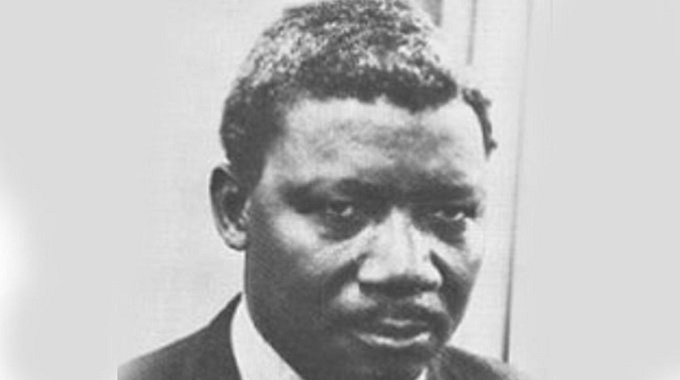Gweru: Home to first Zanu congress

Patrick Chitumba, Midlands Bureau Chief
Located almost at the geographical centre of the country, is Gweru, the capital of the Midlands Province.
In 1894, it became a military outpost established by Leander Starr Jameson. In 1914, it attained municipal status, and in 1971 it became a city.
The city is home to iconic institutions such as the Midlands Provincial Heroes Acre, where dearly departed gallant sons and daughters of the country are buried and Monomotapa Hall, in Mutapa suburb where Zanu held its first congress in 1964.
The congress was held from May 21 to 24, 1964 in this city called Gwelo, later renamed Gweru. That is when the late Cde Ndabaningi Sithole was elected president and former President, the late Cde Robert Mugabe appointed secretary general. Zanu was banned later that year by Ian Smith’s government.
It is after that congress that President Mnangagwa and his colleagues popularly known as the Crocodile Gang embarked on a number of sabotage missions including the bombing of a goods train in Masvingo in a bold act of defiance against the oppressive Rhodesian regime.
The armed struggle waged against the colonial masters resulted in Zimbabwe’s Independence on April 18, 1980 whose 40th anniversary we commemorated on Saturday.
“The thought of the events which transpired on May 24, 1964 feels like it’s just yesterday but it has been many years, it has been over 50years……we passed through Mtapa Hall in Mutapa and we saw the Monomotapa Halls (popularly known as Mutapa Hall). On 24 May 1964, we had just arrived from China from training and we were able to be slipped in to attend the first congress of Zanu at that hall,” recalled President Mnangagwa on Monday last week shortly after he had toured the city to gauge residents’ adherence to the national lockdown to contain Covid-19.
“I remember that this is where Ndabaningi Sithole was elected president, Leopold Takawira vice president, Herbert Chitepo national chairperson, Mugabe secretary general and Maurice Nyagumbo national organising secretary, deputised by (the late Vice President Simon) Muzenda. Enos Nkala was elected treasurer, Simpson Mtambanengwe secretary for international relations, I think deputised by Trynos Makombe and so on and so on.”
“Yes, I am feeling a lot of nostalgia, but now it’s history that I have to go back to again. It’s a lot of years, over 50 years we were here in Gweru and I can still remember events as they unfolded. Today we are an independent country. At that time, it was Rhodesia and we were busy planning how to remove Ian Smith’s government and those were the initial stages of our armed struggle when we were recruiting young people for military training,” he said.
The 1964 Congress was Zanu’s first after its formation in August 1963 and was confronted with the unenviable task of waging an armed struggle.
They also met to strategise because all they did was learnt through some bitter lessons. The reality was that freedom was not going to be handed to the people on a silver platter.

Two years after the Gwelo congress, the first shots for total political and economic freedom rang in Sinoia (Chinhoyi), resulting in the first seven freedom fighters perishing.
The People’s Congress of 1964 took the decisive action to wage an armed struggle and regain lost land and political independence as the founding members embarked on a journey into the future, a journey to Gwelo to lay the foundation of a new Zimbabwe.
It was a journey they took on, fearlessly because they knew they were the architects of their own future.
Boycotts and strikes by blacks in the then Rhodesia had failed to bring about the desired change. The strikes were brutally suppressed, leading to deaths and the arrest of blacks.
It was at the Gwelo Congress that Zanu took the decision to engage Ian Smith in an armed confrontation.
So, it was at the 1964 Congress where Zanu set the tone for the future, which meant the dismantling of colonialism and everything it entailed.
The defeat of Ian Smith on the warfront and the electoral victory that introduced democracy in 1980 set Zanu on the path to see the indigenous take control of their resources.
Since the facility is where Zanu was founded back then; where monumental decisions that shaped Zimbabwe’s history were made, it could be essential that it be made a national monument.
The hall virtually looks the same as it did way back in 1964 just a rectangular building which African residents of the township of the same name used as a venue to watch bioscopes at weekends.
Residents in separate interviews said the building should be protected or looked after so that it becomes a tourist attraction.
“I think I was 15 years old when we heard of the Zanu congress. I was young and have no memory. But it is my appeal that this hall is taken care of so that we have people coming to see it. There should be pictures displayed, an art gallery of the gallant freedom fighters who met that day because it is their bravery and unselfishness that led to the country attaining independence,” said Mrs Rosemary Mwale, a resident.
Zanu-PF Midlands provincial chairperson Engineer Daniel McKenzie Ncube said the 1964 Zanu Congress was a defining moment in the struggle for independence and therefore the need to honour the hall for future generations to keep in touch with their history.
“The year 1964 was a defining moment in the struggle for independence. The first structured leadership of Zanu strategically decided to hold their first Congress at Mutapa Hall. This is very significant and the hall will forever remain the symbolic edifice of the struggle. Unfortunately the City Fathers are not channelling funds towards its upkeep. Maybe Government should take it over,” he said.
Acting regional director Central Region for National Museums and Monuments of Zimbabwe (NMMZ) Mr Clapperton Gutu said they were working at making the hall a national monument.
“We value the hall the same way we value liberation struggle and any component that makes up the history for the liberation struggle. Any place, building or related things that played a part in the liberation struggle fall under heritage site. So Mutapa halls is a national monument because of the value it carries, it played a part,” he said.
Mr Gutu said the hall was used by Zanu in 1964 and should be protected as a national monument.
“So we are now considering to have it proclaimed as a national monument. We have to produce a dossier and give concrete information on how it contributed to the liberation struggle which will all know but we just following procedure or the law. So we will be looking at the values, then present them. For example six years ago, we presented information on Midlands Heroes Acre and it was proclaimed as a national monument. The same with Skombela prison in Gokwe and so we are going to look at Mutapa Hall so that it is gazetted as a national monument,” he said.











Comments